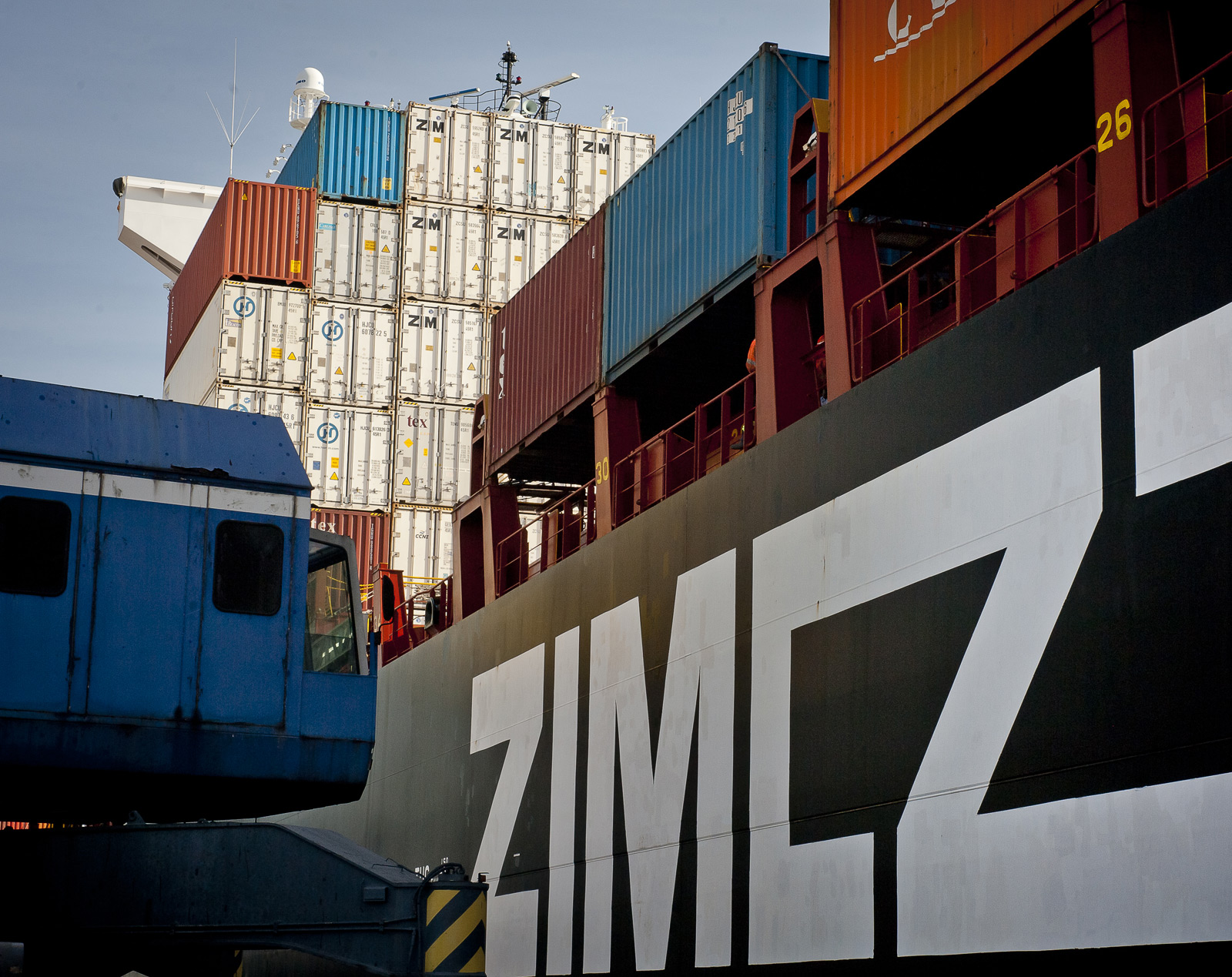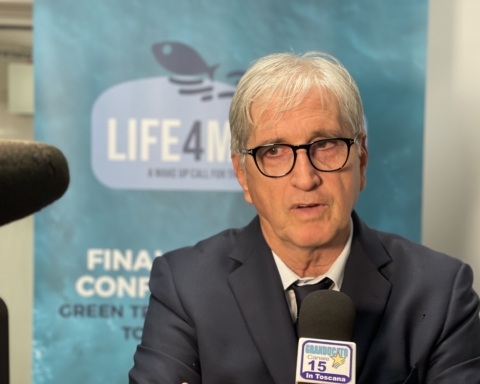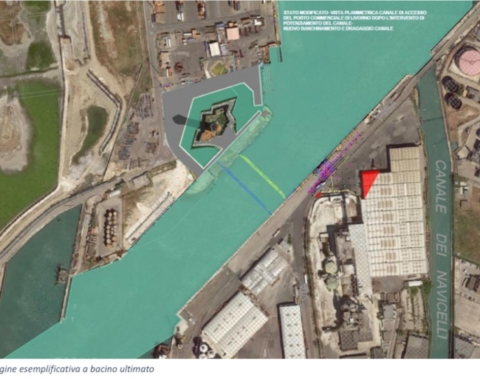10 containers lost per week between Genoa and Livorno, 500 per year. This is the price that the Israeli company Zim could pay because of the escalation of the trade war between the United States of America and the EU following the verdict of the World Trade Organization (WTO) on state aid to the Airbus consortium. The first, prudent, estimate is offered by the Managing Director of ZIM Italia, Gianfranco Gazzolo, whom we interviewed exclusively for Port News.
The Genoese manager does not like to provide figures at random, and wants to clarify how the situation is very fluid today (“We still do not know, with certainty, if Italy will be affected only on cheese or even on other types of products”), but what leaves him puzzled is that the ‘Bel Paese’ has been put in the middle of a legal dispute between Boeing and Airbus, which affects mainly other member states, such as France and Germany.
“The verdict of the World Trade Organization – points out Gazzolo – authorizes the United States to apply duties on goods imported from the EU totaling about 7.5 billion dollars to compensate for state aid to the European consortium Airbus which has been found to be illegal. Italy is forced to pay for mistakes made by others.
The consequences of this new trade war are unpredictable, even if Nomisma has declared that on the 5.48 billion dollars of Italian agri-food goods imported into the U.S. in 2018, the amount affected by the new duties is about 482 million dollars, 9% of the total.
What is important for the Managing Director of Zim Italy, however, is that “the extra U.S. tariffs on our PDO cheeses could have significant impacts on the entire dairy chain. Our national economy could lose significant market shares in the connections with the United States, even if it is not to be excluded that such volumes can be recovered in some other way, for example, by increasing trade with other countries such as Canada and Mexico.”
Livorno is, together with Genoa, one of the ports most exposed to geopolitical tensions and fears related to the various on-going trade wars. “For Zim, Livorno is an important reference point for both North American and Intramed traffic”, says Gazzolo, who just recently presented the ZIM Monitor project at the Amerigo Vespucci freight village, “an absolute novelty in our sector, a fully telematized service for controlling the route of refrigerated goods from origin to destination”.
ZIM reefer containers are the first, on the international scene, to be equipped with intelligent control sensors, gps-gsm communication modules able to identify whether the container has suffered substantial damage during the journey: “With this service provided 24 hours a day, 7 days a week, we are able to transmit customizable alerts to the parties involved in the logistics chain in case of change of route, disconnection from the electricity network or other problems. From the moment the alert is triggered, our technicians can intervene and resolve any failure in less than an hour.
It is no coincidence that this technological innovation, now extended to cold treatment for exporting fruit, was presented at the Vespucci freight village. “At Vespucci, an important logistics hub will soon be created for the Tuscan pharmaceutical industry. It is clear that Zim Monitor is a particularly useful tool for high-quality goods, such as pharmaceutical products”.
Gazzolo says it without beating too much around the bush: “Zim wants a leading role in this new phase of development of the Vespucci freight village, as a provider of ancillary services. And we already know that we can count on the reliability of Inter Repairs Nord, a partner company with which we presented Zim Monitor in Livorno”.
In short, Vespucci is an added value for Zim, “a logistics area with great potential”. And is the port equally strategic for the Haifa company? “We have been long-standing clients in Livorno – the manager stresses – and we carefully monitor the developments that the port will have in the future.”
Although Livorno port has traditionally always had draught problems, the Genoese manager appreciates the work the local port authority has been able to carry out over the last few years, in terms of dredging activities and temporary expansion of the port approach channel.
Moreover, the Darsena Europa project, for Gazzolo represents an important challenge that has to be won: “We have been talking about it for years, now, but I am sure that once completed, this work will help to strengthen the position of the port on the international market”.
The most important objective to be achieved, however, is to further develop its rail links: “Livorno must broaden its range of action, so as to be able to intercept goods that are currently destined to other ports with better rail facilities. Without the attention to the rail network, the Darsena Europa would be an incomplete project”.
Translation by Giles Foster




